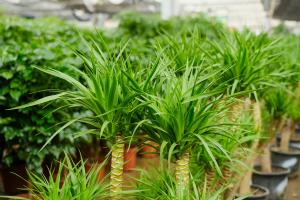Is Hard Water Bad for Aquarium Plants?
One of the most important factors for the successful growth of aquarium plants is water quality. While many factors can affect water quality, such as pH level and nutrient balance, water hardness is another crucial consideration. Hard water is water that contains high levels of dissolved minerals, such as calcium and magnesium. Although some fish species thrive in hard water conditions, aquarium plants can be very sensitive to these high mineral levels. So, the question remains: is hard water bad for aquarium plants?
What is Hard Water?
Before we delve into the potential effects of hard water on aquarium plants, it's important to understand what hard water is. Hard water is water that has a high concentration of minerals, specifically calcium and magnesium. In some regions, tap water can be naturally hard due to the geological composition of the surrounding bedrock. In other cases, water can be treated with chemicals to make it harder. The degree of hardness is usually measured in ppm, or parts per million.
Effects of Hard Water on Aquarium Plants
While hard water can be beneficial for some aquatic species, it can have adverse effects on aquarium plants. High mineral content in hard water can cause issues with the plant's root system, as well as interfere with nutrient uptake. The minerals in hard water can bind to other nutrients, making them unavailable for the plant to use. This means that even if the proper nutrients are present in the water, the plant may not be able to absorb and utilize them properly. Additionally, hard water can lead to the formation of mineral deposits on plant leaves, which can interfere with photosynthesis and overall plant health.
Signs of Hard Water Issues in Aquarium Plants
If your aquarium plants are not thriving, it's possible that hard water may be the culprit. Some common signs of hard water issues include stunted or slow growth, discolored leaves, and a general lack of vigor. Additionally, if you notice that the leaves have a white, powdery coating, this could be a sign of mineral build-up. If left unchecked, these issues can lead to plant death and a less healthy aquarium ecosystem overall.
Testing for Hard Water
If you suspect that your aquarium plants may be suffering from hard water, the first step is to test the water source. You can purchase water testing kits that will measure the mineral content in ppm. If the ppm reading is higher than the recommended values for aquarium plants, it may be necessary to take steps to lower the hardness level.
Ways to Lower Water Hardness
There are several ways to lower water hardness, depending on the severity of the issue. One option is to dilute the hard water with either distilled water or reverse osmosis filtered water. Another option is to use a water conditioner that will chemically alter the minerals in the water, making them less harmful. Lastly, if the water hardness is only mildly elevated, you may be able to mitigate the issue by increasing the frequency of water changes to dilute the mineral content over time.
Conclusion
While hard water can be beneficial for some aquatic species, it can be detrimental to aquarium plants. The mineral content in hard water can interfere with nutrient uptake and cause mineral build-up on plant leaves, leading to poor plant health and even death. By testing for hard water and implementing strategies to lower the mineral content, aquarium enthusiasts can ensure that their plants thrive and contribute to a healthy, balanced aquarium ecosystem.

 how many times do yo...
how many times do yo... how many planted tre...
how many planted tre... how many pine trees ...
how many pine trees ... how many pecan trees...
how many pecan trees... how many plants comp...
how many plants comp... how many plants can ...
how many plants can ... how many plants and ...
how many plants and ... how many pepper plan...
how many pepper plan...
































